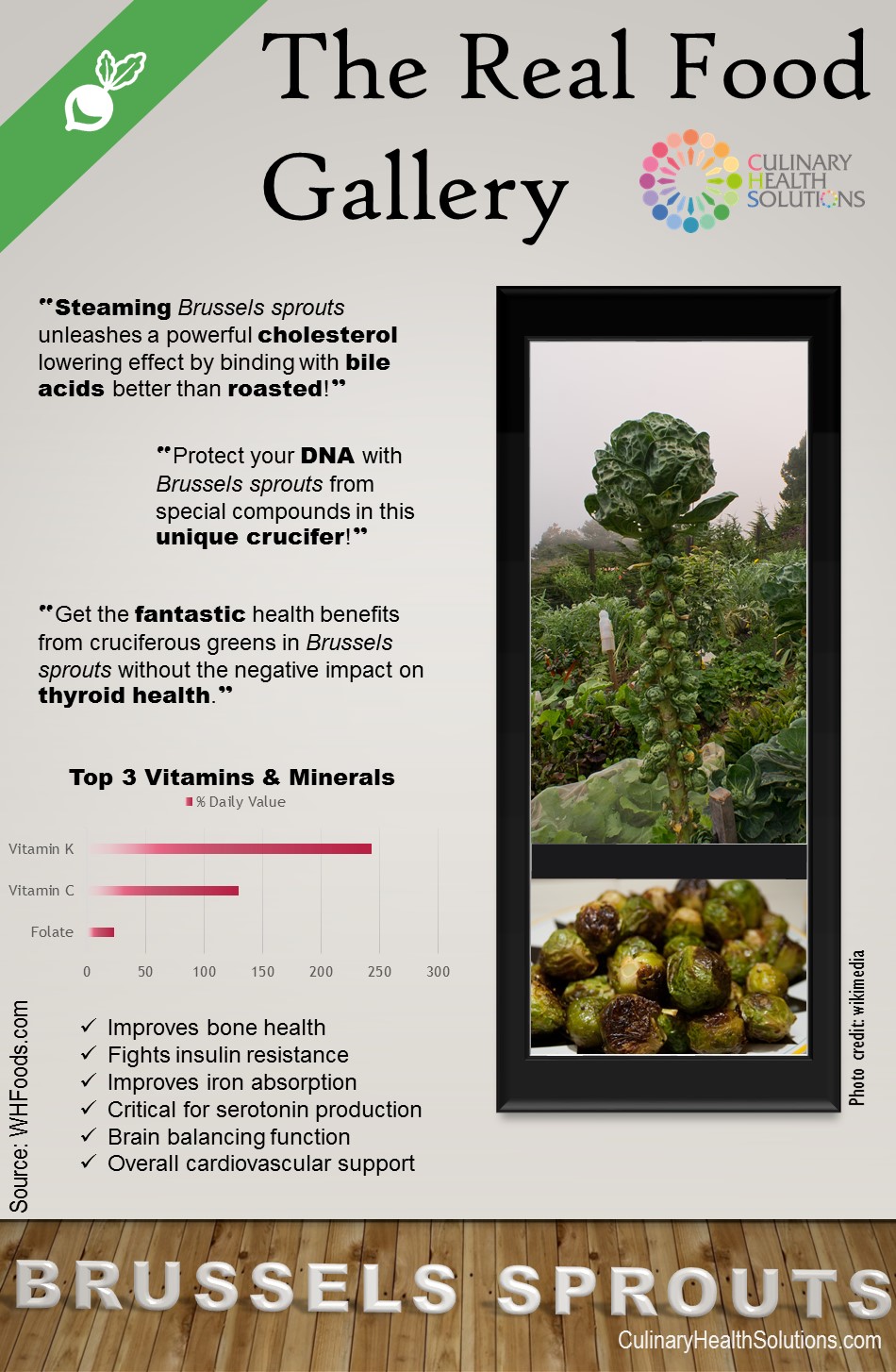Brussels Sprouts

Brussels sprouts can provide you with some special cholesterol lowering benefits if you will use a steaming method when cooking them. The fiber related components in Brussels sprouts do a better job of binding together with bile acids in your digestive tract when they've been steamed. When this binding process takes place, it's easier for bile acids to be excreted, and the result is a lowering of your cholesterol levels. Raw Brussels sprouts still have cholesterol lowering ability — just not as much as steamed Brussels sprouts.
Brussels sprouts may have unique health benefits in the area of DNA protection. A recent study has shown improved stability of DNA inside of our white blood cells after daily consumption of Brussels sprouts in the amount of 1.25 cups. Interestingly, it's the ability of certain compounds in Brussels sprouts to block the activity of sulphotransferase enzymes that researchers believe to be responsible for these DNA protective benefits.
For total glucosinolate content, Brussels sprouts are now known to top the list of commonly eaten cruciferous vegetables. Their total glucosinolate content has been shown to be greater than the amount found in mustard greens, turnip greens, cabbage, kale, cauliflower, or broccoli. In Germany, Brussels sprouts account for more glucosinolate intake than any other food except broccoli. Glucosinolates are important phytonutrients for our health because they are the chemical starting points for a variety of cancer protective substances. All cruciferous vegetables contain
glucosinolates and have great health benefits for this reason. But it's recent research that's made us realize how especially valuable Brussels sprouts are in this regard.
The cancer protection we get from Brussels sprouts is largely related to four specific glucosinolates found in this cruciferous vegetable: glucoraphanin, glucobrassicin, sinigrin, and gluconasturtiian. Research has shown that Brussels sprouts offer these cancer preventive components in special combination.
